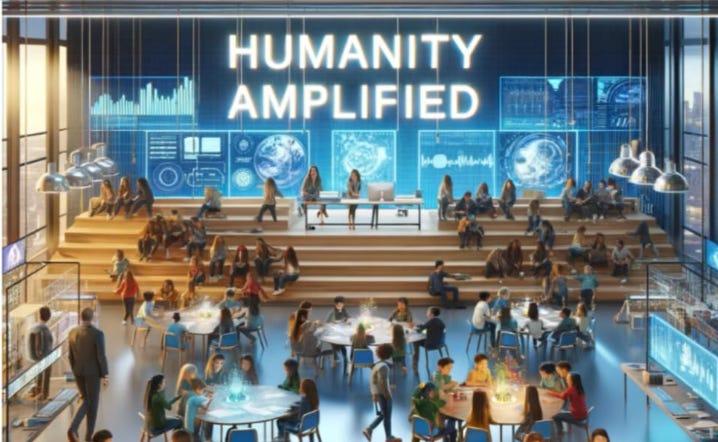Our "Humanity Amplified" Book is included for Paid Blog Subscribers
Our (with Dr. Sabba Quidwai) book is available in Word format (including easy side map navigation) for all paid subscribers ($30) of this blog (link after the screen shots).
It’s thoroughly researched with over 2,000 footnotes.
Summary: While computer scientists have made great strides in developing human intelligence capacities in machines using deep learning technologies, including the abilities of machines to learn on their own, a significant part of the education system has not kept up with developing the intelligence capabilities in people that will enable them to succeed in the 21st century.
Instead of fully embracing pedagogical methods that place primary emphasis on building skills that nurture our humanity, such as empathy, collaboration, critical thinking, communication, creativity, and self-learning through experiential, interdisciplinary approaches, a substantial portion of the educational system continues to heavily rely on traditional instructional methods and goals.
The book emphasizes the need to prioritize academic programs that promote human deep learning as well as methods that integrate human deep learning approaches and AI tools. It suggests that this kind of human-computer interaction (HCI) will amplify all capacities of human intelligence, ensuring that people thrive even though machines will likely surpass human intellectual capabilities in all or nearly all domains over the next few decades or less, possibly by the time today’s first graders graduate from high school.
We also make the case that schools should support developing many essential human attributes such as courage, kindness, love, and patience in students, traits that are not only difficult to develop in machines but that will be required to thrive regardless of any progress made in developing human intelligence and other capabilities in machines. Our approach does require a change to the underlying grammar of education, but without it, we risk employing AI tools to simply hyperscale approaches to education developed in the early twentieth century.
The book begines with an overview chapter and then looks at how we’ve worked to develop human intelligence since the mid 1700s. It then includes an overview of the radical and continued advances in AI that we are currently experiencing, including developments such as autonomous AI agents that can make their own choices and undertake their own actions when given goals.
We conclude with a practical roadmap for schools to immediately begin implementing changes so that all students can succeed in the AI world. Such changes will require educators to embrace significant change and overcome entrenched grammars, all well leveraging the genius they currently contain.
Additional content for paid subscribers is coming soon!
Access the full volume in Word at the link below if you are a paid subscriber. The most recent updates are always available for a one time subscription fee.








